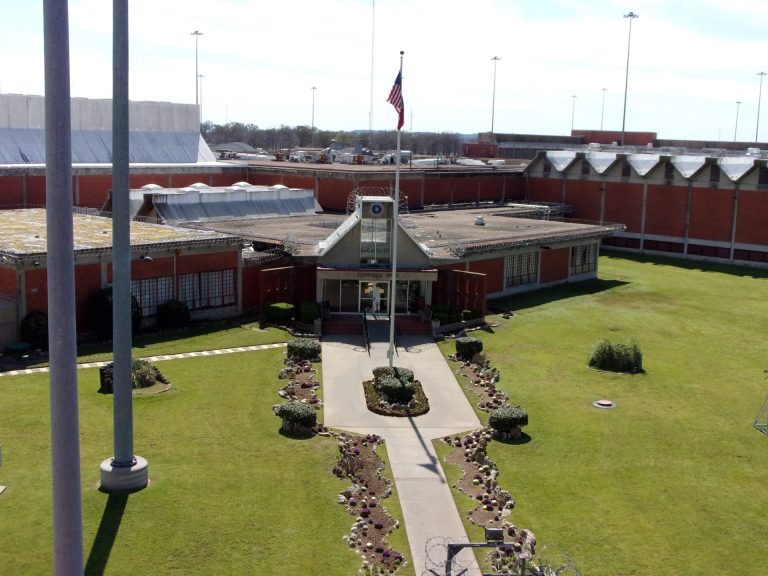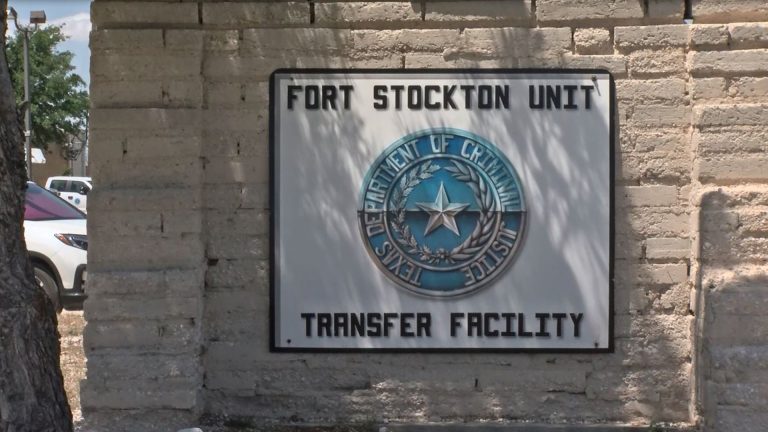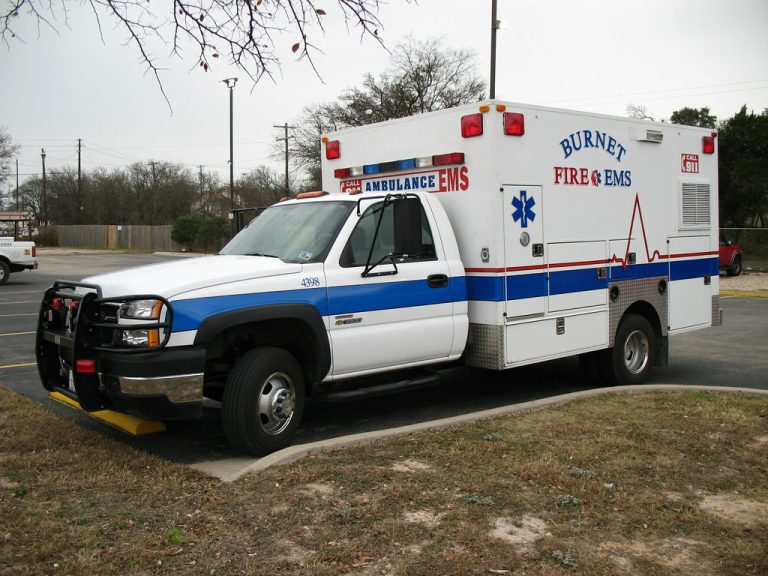J.B. Wheeler State Jail
Visiting Hours
Maintaining connections with loved ones is crucial for inmates’ mental and emotional well-being. Wheeler State Jail offers visiting hours on Saturdays and Sundays from 8 am to 5 pm. Here are some important details to note:
- Visitors must be on the inmate’s approved visitation list.
- Visits are limited to a maximum of two hours, with shorter visits for arrivals after 3 pm.
- Visitors can bring up to twenty dollars in quarters in a small clear plastic bag for vending machine purchases (paper currency is not allowed).
- Special visits lasting four hours may be available for individuals traveling over 300 miles to visit Wheeler State Jail. Contact the Warden’s office for more information.
Contact Information
For those seeking to get in touch with Wheeler State Jail, here are the essential contact details:
- Physical Address: Wheeler State Jail 986 County Road AA Plainview, TX 79072
- Telephone: (806)-293-1081
- Inmate Mailing Address: Inmate Name, TDCJ ID Number Wheeler State Jail 986 County Road AA Plainview, TX 79072
Introduction
Welcome to the comprehensive guide on J.B. Wheeler State Jail, a correctional facility dedicated to the rehabilitation and reintegration of inmates. In this article, we will explore the history, purpose, programs, challenges, and impact of J.B. Wheeler State Jail on both inmates and society.
Overview of J.B. Wheeler State Jail
J.B. Wheeler State Jail, located in XYZ County, is a state-operated correctional facility under the jurisdiction of the XYZ Department of Criminal Justice. The facility houses adult offenders who have been convicted of non-violent crimes and serves as a transitional center for those nearing the end of their sentence.
History and Purpose of the Facility
Established in the early 1990s, J.B. Wheeler State Jail was built with the aim of addressing the issues of overcrowding in the state’s prison system while providing a structured environment for inmates to prepare for reintegration into society. The facility emphasizes the importance of rehabilitation and offers various programs and services to support inmates’ personal growth and development.
Inmate Programs and Services
At J.B. Wheeler State Jail, inmates have access to a wide range of programs and services designed to enhance their skills, education, and employability. These include vocational training, educational classes, substance abuse counseling, cognitive-behavioral therapy, and life skills workshops. The facility also partners with local organizations to provide job placement assistance upon release.
Security Measures and Staffing
To ensure the safety and security of both staff and inmates, J.B. Wheeler State Jail implements strict security measures. The facility is equipped with surveillance systems, controlled access points, and a dedicated team of correctional officers who undergo rigorous training. Regular inspections and protocols are in place to prevent escapes and maintain order within the facility.
Living Conditions and Rehabilitation
The living conditions at J.B. Wheeler State Jail are designed to promote rehabilitation and prepare inmates for successful reintegration into society. Inmates are provided with basic necessities such as food, shelter, and healthcare. Additionally, they are encouraged to participate in educational and vocational programs that can equip them with valuable skills for future employment opportunities.
Challenges Faced by the Facility
Like any correctional facility, J.B. Wheeler State Jail faces its share of challenges. Overcrowding, limited resources, and budget constraints can impact the quality and effectiveness of inmate programs. Staff shortages and high turnover rates also pose challenges in maintaining a secure and rehabilitative environment.
Impact on Inmates and Society
The impact of J.B. Wheeler State Jail extends beyond the confines of the facility. By focusing on rehabilitation and reintegration, the facility aims to reduce recidivism rates and promote positive change among inmates. Successful rehabilitation outcomes benefit not only the individuals involved but also contribute to safer communities and reduced strain on the criminal justice system.
Success Stories and Rehabilitation Outcomes
J.B. Wheeler State Jail has witnessed numerous success stories where inmates have turned their lives around and successfully reintegrated into society. Through educational programs, vocational training, and counseling, individuals gain the necessary skills and confidence to rebuild their lives upon release. Many former inmates have secured stable employment, pursued higher education, and become productive members of their communities. These success stories highlight the transformative power of rehabilitation programs offered at J.B. Wheeler State Jail.
Public Perception and Controversies
Public perception of correctional facilities like J.B. Wheeler State Jail can vary widely. Some people view them as necessary institutions that provide an opportunity for rehabilitation and reintegration. Others may hold negative perceptions, associating jails with criminal behavior and a lack of effectiveness in reducing recidivism. Controversies surrounding the criminal justice system, such as overcrowding and treatment of inmates, can further influence public opinion.
Future Plans and Improvements
J.B. Wheeler State Jail continues to evolve and adapt to meet the changing needs of the inmate population and society as a whole. The facility administration and staff are constantly exploring new strategies and initiatives to enhance rehabilitation outcomes. This includes expanding educational programs, strengthening partnerships with community organizations, and implementing evidence-based practices for reducing recidivism.
Conclusion
J.B. Wheeler State Jail plays a vital role in the criminal justice system, offering inmates an opportunity for rehabilitation and successful reintegration into society. Through a range of programs and services, the facility aims to address the underlying causes of criminal behavior and equip individuals with the necessary skills to lead productive lives. While challenges persist, the dedication of staff and the positive outcomes witnessed demonstrate the potential for change and rehabilitation within the corrections system.
Frequently Asked Questions (FAQs)
1. Are inmates at J.B. Wheeler State Jail allowed to have visitors? Yes, inmates are permitted to have visitors in accordance with the facility’s visitation policies. Visitors must adhere to specific guidelines and procedures for scheduling and conduct during visits.
2. What types of vocational training programs are available at J.B. Wheeler State Jail? The facility offers vocational training programs in various fields, such as carpentry, welding, culinary arts, and automotive repair. These programs aim to equip inmates with valuable skills that can increase their employability upon release.
3. How does J.B. Wheeler State Jail support inmates’ mental health needs? The facility provides access to counseling services, including individual and group therapy, to address inmates’ mental health needs. Trained professionals offer support, guidance, and coping strategies to help inmates navigate their emotional well-being.
4. Does J.B. Wheeler State Jail offer educational programs for inmates? Yes, J.B. Wheeler State Jail offers educational programs that allow inmates to earn their high school equivalency diploma (GED) or pursue further education through college courses or vocational certifications.
5. How does J.B. Wheeler State Jail prepare inmates for reintegration into society? The facility focuses on rehabilitation by offering life skills workshops, job readiness training, and assistance with job placement upon release. These initiatives aim to empower inmates with the tools and resources necessary to reintegrate successfully into their communities.








